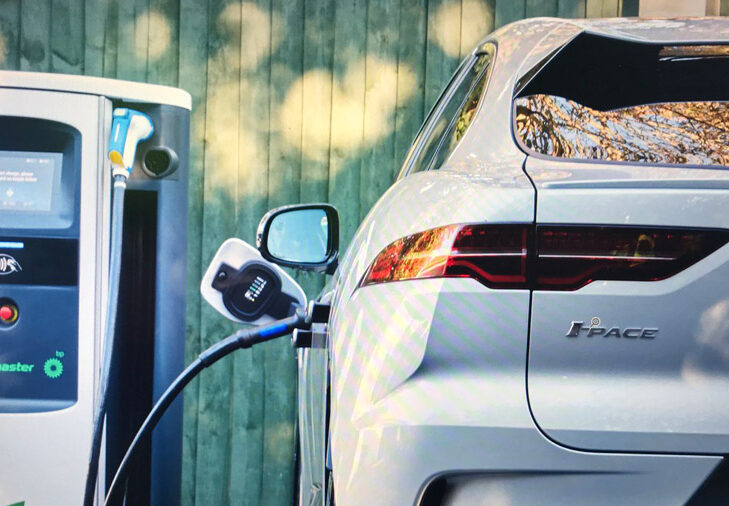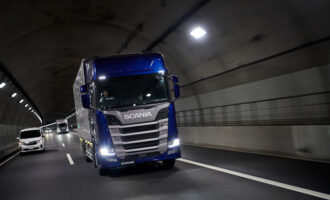
Convenience. The future of transport
By Aaron Stone and Glenn Denton
People today lead increasingly busy lifestyles and just don’t seem to have the time and energy to perform many of the menial or time-consuming tasks we may have in the past. We expect everything to be at our fingertips and are grateful for ingenious technologies or services that provide a heightened level of convenience.
Modern transportation is all about convenience. From the latter-day features that flow into new vehicles to the proximity of gas stations and array of value-add services. Filling stations allow us to replenish our fuel in a matter of minutes and get back on the road. Many also offer smart payment options, loyalty discounts, and a selection of fast foods and beverages. Every step of the service station customer experience is focused on expediency for the customer, accelerating the transaction, or offering accompanying services. The challenge with convenience is not the what, but typically the how.
But, is it a lack of convenience that is stalling the uptake of the next generation of vehicles?
There is a broad consensus of the need to embrace new engine technology. Approximately one-quarter of carbon emissions come from transportation and, on current trends, the global car parc could double to almost two billion within the next two decades, according to a recent analysis by British multinational oil and gas company BP. Electric vehicles will play a pivotal role in the future of transport by lowering greenhouse gas (GHG) emissions, alongside efficiency advancements in conventional engines, and alternative fuels.
In the United Kingdom (UK), 38% of consumers contemplating a new car purchase would consider an electric vehicle (EV). However, only 2% of new car sales are currently ultra-low emission. So, what is preventing greater adoption of EVs?
Putting aside the higher sticker price; anxiety relating to range, queuing and a reliable charging experience are still repressing individuals and businesses from shifting to electric vehicles. More than one-third of English household’s lack access to off-street parking to accommodate at-home charging, according to a July 2017 UK Government and Industrial Strategy report entitled “Road to Zero.” As you would expect, availability is even lower in rural locations.
A national network of ultra-fast charging (UFC) that would “closely replicate the current fuelling experience” will be instrumental in overcoming barriers and enabling the growth of EVs, says Tufan Erginbilgic, chief executive, Downstream at BP. Erginbilgic mentioned this during a presentation to industry stakeholders on 8 May 2019 entitled “Future of mobility: the role for high-power charging.” Consumers purchasing internal combustion engines (ICE) today are the same people who might consider buying an EV in the future, he says. Therefore, the experience of running an EV must be equivalent, if not more convenient than today. For context, BP defines UFC as a top-up of 100 miles in 10 minutes or less.
A UFC network offers the necessary convenience for apartment dwellers, those without suitable access to off-street parking, or businesses looking to maximise vehicle utilisation. It also complements existing home and destination charging. However, Erginbilgic believes the infrastructure could also play a role in reducing the price of EVs — by enabling the purchase of cars with smaller, lower cost batteries that can take a more frequent, ultra-fast charge. An April 2017 Statista report on the battery costs of large-size electric vehicles as a share of the total cost, highlighted that EV batteries accounted for 43% of the vehicle price in 2018. By 2030, this is expected to fall to approximately 19%.
Unfortunately, it is not as simple as increasing power and reducing charging times. There is significant uncertainty over the volume of fast charging that will be required in the future. Equally important are siting strategies that ensure appropriately powered charging stations are located optimally across road networks, city forecourts and fleet hubs. The BP representative also raised the notion of integrated offers that allow consumers to achieve multiple goals in one trip.
Markets such as Oslo, Norway, and San Jose, California, U.S.A., have some of the highest EV uptakes, despite lower observed ratios of fast chargers per electric car than some less developed markets in the United States and Europe. Regional variances require a tailored solution to match local requirements. Although, a July 2018 white paper by the International Council on Clean Transportation (ICCT) suggests “there is a clear trend toward initially needing more fast charging to obtain extensive geographic coverage and region-to-region connectivity.”

The robustness of existing electricity network infrastructure is another key consideration. Supporting an increase in the penetration of EVs comes with a considerable price tag, and there are limitations on the level of power that can be withdrawn at peak times. High demand charges can impact operating costs and profitability, thus requiring contemplation of the most cost-efficient power delivery method.
BP believes a “network of high-power chargers, on and off forecourts” will allow consumers the necessary convenience while lessening stress on grid infrastructure. Coupled with centralized energy storage and onsite energy generation, energy could be stored during off-peak hours when energy charges are lower and utilised to reduce peak demand.
The British oil major is accelerating its investment in electric vehicle technology. BP acquired Chargemaster, operator of the UK’s largest EV charging network with 6,500 charging points across the UK, in 2017. During his presentation, Erginbilgic highlighted further plans to roll out ultra-fast charging to its forecourt network from July 2019, with 400 ultra-fast chargers to be installed by 2021, many of which will charge at 150kW as standard.
A USD20 million investment in StoreDot, a leading developer of ultra- fast charging batteries; USD5 million in U.S. mobile electric vehicle charging company Free-Wire; and BP Ventures’ recent stake in PowerShare, a leading integrated hardware and software solutions provider for electric vehicle (EV) charging in China, are further evidence of BP’s commitment to advanced mobility solutions and life after fossil fuels.







